
In 2011 the California Institute of Integral Studies concluded a several month long investigation into Cultural Anthropology professors Angana Chatterji and Richard Shapiro. Both were fired citing a “cult-like environment,” “exploitation,” and a “siege mentality” among other reasons. In 2007 I was one of four students who walked out of the program reporting serious dysfunction. This is the never been told story of how it unfolded.
Be Scofield is a prominent cult reporter whose work is cited by the New York Times, Washington Post, People, Daily Beast, The Guardian and has led to coverage on Netflix, Dr. Phil, VICE, CNN and elsewhere. -> Follow on Facebook
1/3/2017
“In its function, the power to punish is not essentially different from that of curing or educating.” — Michel Foucault
Ten years ago, in April of 2007, I walked out of the Cultural Anthropology graduate program at the California Institute of Integral Studies (CIIS). To this day, I’ve never stepped foot back in the building. I’m not sure I ever will again.
I was one of four students who left, mid-semester, and blew the whistle on a personality cult surrounding professor Angana Chatterji and her husband professor Richard Shapiro. We reported in great detail serious psychological abuse, manipulation, exploitation and dysfunction. We warned them that a cult was in their midst.
The school hired an ombudsperson who did a minor investigation at the time, but nothing came of it. CIIS, a major center in the history of the human potential movement, mostly ignored our heartfelt warnings. They offered to refund our spring semester tuition if we agreed not to sue them. The four of us signed the document. The refund was a small token considering what had transpired.
That was 2007.
Almost four years later, in December 2011, both professors were fired by the school with a great sense of urgency. The Faculty Hearing Board who recommended their termination issued a dire warning, “There is substantial risk to further damage to students and CIIS unless immediate action is undertaken.”
The Making of a Cult
Like so many others who entered the Cultural Anthropology program I was a passionate and dedicated social activist who wished to combine theory with practice. The program seemed like a dream come true. With a deep interest in spirituality, the school at large was very appealing as well. And attending an institution where “San Francisco is your campus” as CIIS advertised was thrilling.

None of us could have ever imagined what we were about to walk into. Whatever notions we had about what it meant to be a scholar-activist were about to be twisted beyond all measure. Years of trauma, mountains of loss and lots of unwanted financial debt would be accumulated as a result.
“Dr. Angana Chatterji is the most powerful being I have ever met…Her capacity borderlines on Mastery. Her power is deeply complex…She uses concentrated rage with Mastery…I am becoming a Master — like her I conjure divinity…These beings [Angana and Richard Shapiro] resonate on degrees of consciousness barely comprehensible to others…She [Angana] is the one whom we fear, to whom we gravitate… and in her presence we share divine expression, visions of practice, healing, and transformation. She conjures Kali and she is a destroyer.” — Former Anthropology student
A Radical New Self
Apparently being part of a social change movement meant accepting a cult-like environment because the indoctrination began on day one. Professor Angana Chatterji stormed into class and started screaming and yelling at us. She screamed at students for anything from showing up thirty seconds late to class to asking questions and shutting off a cell phone before class. It was just a tactic; the reason didn’t matter. It effectively shocked us into subservience and fear.
From that class onward, there was not a week that went by where I did not witness a student break down in tears in her classes. Sometimes it was from yelling, targeting, or abuse. Other times it was from students confessing, purging and revealing themselves in response to a radical new way of being — something that the pedagogy required in the most unhealthy ways. The workload was also demanding and often pushed students beyond their means. I witnessed many deaths and rebirths while in that program, including my own.
Terms from very important postcolonialist, anti-racist, socialist and feminist discourses were used as jargon to control, abuse and manipulate a group of idealistic and passionate change-makers who really cared. You’ll remember that Jim Jones, also from San Francisco, used a similarly revolutionary approach when building his people’s temple. Both were abusive, totalizing, controlling, all-consuming, and emancipatory. Both were rooted in passionate expressions of social justice and an inherently dysfunctional framework.
From the beginning, we were taught that the Cultural Anthropology program was part of “the revolution” and that we were now part of it. Angana repeatedly talked about the program being under attack — both from internal (CIIS) and external enemies. She frequently spoke of her brilliance, accomplishments, and all the books she had read. We were often told since the age of two, people had been trying to kill her. Long, often incoherent “lectures” would consist of rambling about her personal life, paranoia about the program being destroyed, yelling at students, and distorting ideas of theorists like Foucault. She was powerful, important and in danger we believed.
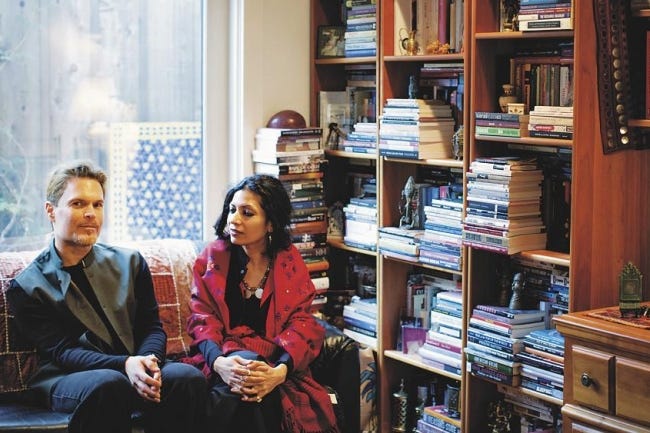
We showed up willing and able to do whatever it took for the cause. Angana exploited us beyond recognition. She effectively used jargon and the discourse to force us to restructure, brutally interrogate and dismantle our sense of self in the most pathological way possible. It’s a classic cult grooming technique; it just so happened that the languaging in this cult used social justice concepts.
It was a brilliant trap. If we objected to the genuine abuse and dysfunction that was going on we were the enemy of the revolution. Even the most radical women of color in the program who protested abuse were too racist according to Angana. Despite being fully committed to an anti-racist and feminist pedagogy the students were still targets. We walked around on eggshells. We didn’t want to be the one that compromised the program by saying or doing the wrong thing.
A climate of fear pervaded the program. Students policed each other, turning in anyone who betrayed the core doctrine or said anything even mildly critical about the professors. Dissent was not tolerated. The most loyal were rewarded with social status and unethical academic reward by the professors. The most disloyal would be subject to public interventions in class, yelling and shame from fellow students.
Angana and Richard got away with it because there was no avenue for students to report our concerns. Angana had graduated from the very same program years earlier while her husband was the chair of the department. After she graduated, Richard made her a core faculty member. This pushed Mutombo M’Panya, a professor who Angana had studied under, to the sidelines. Any concerns we had with Angana we were instructed to go to Richard and vice versa. Obviously, that was useless. And unlike every other department at CIIS, there were no course evaluations in the Cultural Anthropology program. We were trapped.
Walking Out
The four of us who left mid-semester in 2007 didn’t all walk out at exactly the same time. Two women initially left at first, one a woman of color from Africa with a Master’s degree from Stanford. It was a short time later when I caught Angana lying to our class about why they had left that everything began to unravel for me and I left. A fourth student left shortly after I did.
And while four of us walked out during the 2007 Spring semester it was actually five of us who left the program in total. Earlier on in the year a woman of color left mid-semester after Angana screamed at her relentlessly in class for saying she was struggling with the complexity of Gayatri Spivak’s writing. She merely pondered whether or not this was a barrier for folks trying to apply her ideas to action. Just a week after that incident she left the program.
Those of us who left were publicly attacked and smeared by the professors and their devoted students. Richard Shapiro told one class that we left because of “emotional problems.” A student group email claimed that I hated social justice and associated me with people who had wanted to kill Angana, despite knowing I had a long history of social activism. Angana lied to us in class telling us the first two women who walked out, “were needing time away from the program and did not wish to be contacted.” Later, the professors and students circulated the lie that these two students had hired lawyers.
On one occasion after I left, Angana read a personal email of mine word for word without any permission to the entire class. She also spoke about information from another one of my emails without any permission.
I just knew Angana had lied to us in class so I reached out to the two students and told them what she had said. I was right. They had never said what she claimed.
At that point everything began to unravel for me. The night I discovered Angana had been lying to us I stayed up all night moaning and screaming in pain in my abdomen. It was the same place I had felt pain when she yelled at me one day in class. I took myself to the Emergency Room but was dismissed with stress being the cause of my suffering. After the long, tumultuous night of distress, I began to feel as if I had taken my power back for the first time. It was liberating.
It was against great pressure and loss that we stepped out mid-semester. Money, our education, our future, our reputation and our friends were all on the line. This stress is why it was so difficult for students to speak up in this program.
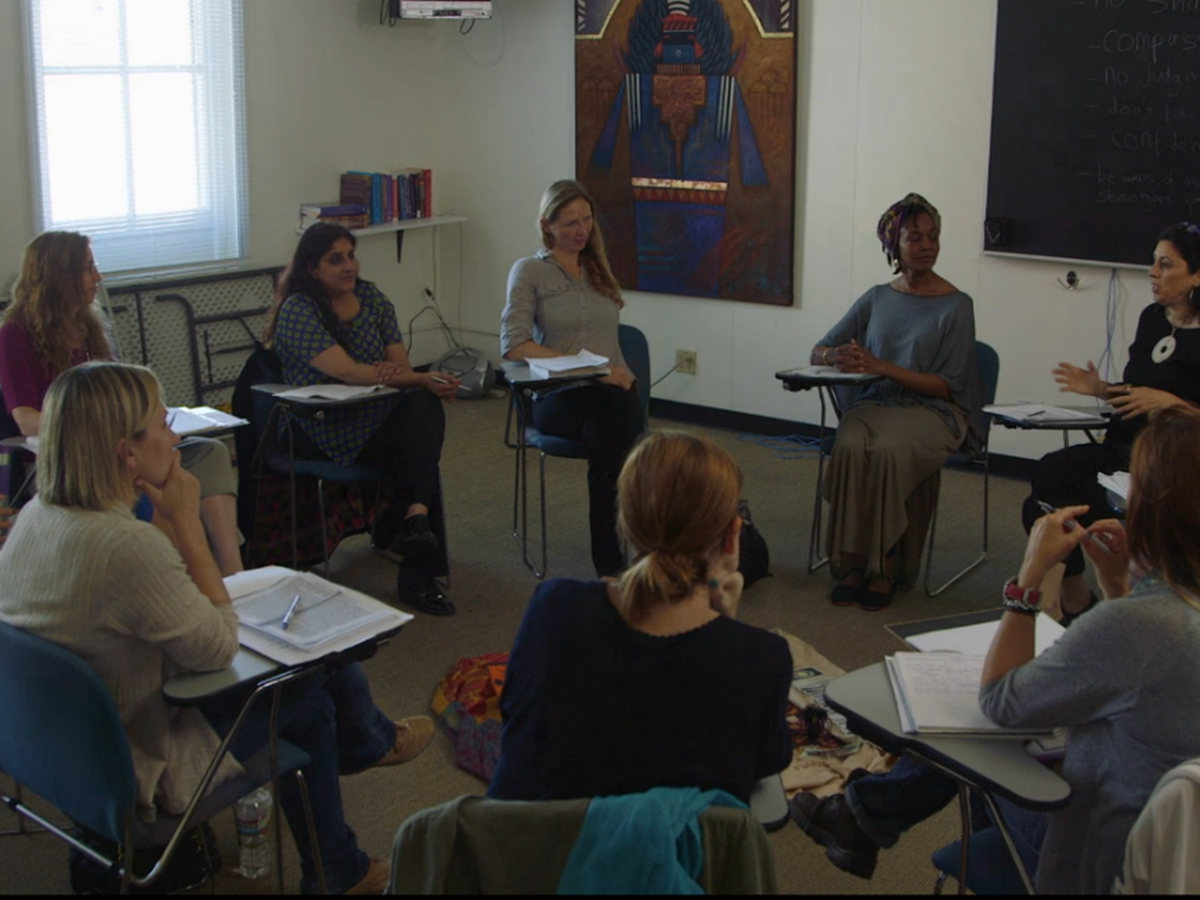
Years of Abuse
Those of us who left gave detailed, in-depth accounts of what was happening in the program. CIIS was fully warned.
One of the women who initially left included a long list of complaints in her document to the school. They read in part:
- Fear, intimidation, shame and guilt as organizing principles in Dr. Chatteji’s classes
- Psychological abuse and manipulation of students by Dr. Chatterji, affecting students mental and physical health to the point of needing to seek medical and psychological care
- Suppression of dissent/critique through retaliation, intimidation, shame, and guilt
- Invasive monitoring and ‘strategic coaching’ of students by Dr. Chatterji
- Thought police: students functioning as informants to instructor
- Failure to provide an intellectual space that allows for independent thought or disagreement
- Coercion to disclose personal information about oneself through manipulative pedagogy of what is required as a student in the program
- Targeting, hazing, and manipulation of individual students throughout Dr. Chatterji’s lectures
- Forced disclosures of personal information through intimidation
- Manipulative use of favoritism and financial help by Dr. Chatterji
Many of these points would be echoed almost word for word in the later Hearing Board report published four years later.
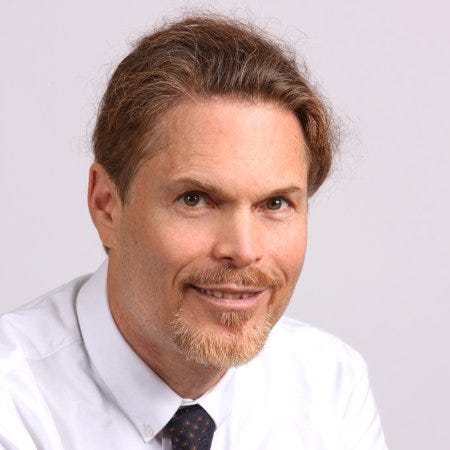
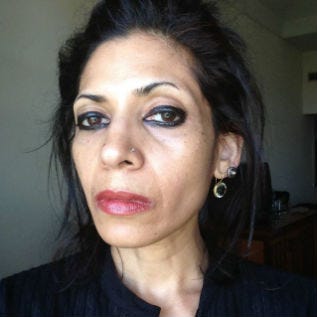
I remember the ombudsperson telling me how utterly perplexed she was with the students feeling that any criticism would bring down the program. She was trying to make sense as to why they believed the program was at risk of being destroyed. I told her they were brainwashed and that Angana had built a cult.
After I left, a woman of color wrote to me her concerns while she was still in the program:
“I am finding this program to be a huge assault to my self-esteem…I find it hard to believe anyone could meet Angana’s standards for showing up, and I am a bit tired of hearing lectures about “not showing up properly”…I feel as though I am constantly teetering on the edge of sanity, and I too am concerned for my overall physical and psychological well-being… As a result of not addressing these concerns sooner, we are all more in debt, and the consequences of our choice to stay or leave has increasingly become more weighted.”
The same student who wrote the bullet point list above also wrote:
“I have witnessed Dr. Chatterji ‘outing’ personal information about students in class. The organizing principles within some of the classes are guilt, shame, intimidation, and fear. ‘Self reflexivity’ and ‘interrogation’ are mandated in invasive and judgmental ways, that border on character annihilation, and it appears for some, self annihilation. Students are hazed and intimidated in Dr. Chatterji’s classes. Some students act as informants to faculty, and ‘interventions’ are ‘staged’ in the classroom based on the information given that are meant to silence dissent or critique, via shame and guilt. I will leave this Institute with a deepened awareness of the reproductions of dominance through the very discourses that profess to dismantle it.”
From another one of the students who left, “This is not the department of “parrotology”; neither is it the department of “Anganology.” So why are you talking like a parrot and why are you talking on Angana Chatterji’s behalf?”
I once wrote an email with some mild concerns about the program to the other students in my cohort. For my “sin” I was turned in to Angana. My punishment was to be berated by Angana in class for thirty minutes. Knowing what was about to transpire, Angana forced the only non-anthropology student to leave the classroom saying “we have some business to take care of.” I had a terrible anxiety attack as she lambasted me in front of 20 of my peers. This is when I felt the horrible pain in my abdomen. I remember I was sitting near the window and I wanted to jump out to escape. I was extremely emotionally disturbed by this experience as I viewed Angana in high regard. I internalized the whole thing and believed I was a terrible person. I spent most of the next week, which was Spring break, in my room in tears believing I needed to purge the sickness that was inside of me.
Fellow students absolutely railed into me for writing that email. I literally wrote that I had some concerns about papers never being turned back on time, how our group work could be more effective and how I was frustrated with the Angana using lecture time to not lecture. That’s it. Everything I said was proven true later, but at the time I was a heretic.
In response to the student emails to me I profusely apologized like the good cult member I was. I searched deep inside myself to purge the violence inside:
“Thank you for everyone calling me out. I deeply apologize. I wrote this in a bad state of mind and should have given serious reflection and thought to what I was experiencing…But of course everything I said says everything about me and very little about Angana or this program. The email is offensive and filled with violence. I deeply regret this. I am struggling with it and I apologize for making this public and violent and associating others in the process.”
Violence? It’s unbelievable looking back at this as the email was so ridiculously benign. But I was so torn up and confused. I was brainwashed. I didn’t understand what was happening.
It’s ironic because the student who wrote the most hateful attack against me was the first one to leave just a few weeks later! She then became subject to the same scapegoating that she had just subjected me to.
I wrote to Angana after this incident. I tore myself up in the email. It is painful to read. I ended with:
“I am convinced that this idea of choosing your parents is not true, because if it were I would have chosen you and Richard. I have taken too much of your time. I am sorry that I have acted the way that I did. I am sorry that I carry these violences with me. You are both very kind. Thank you so much. I promise I will not write anymore. I cannot often see what I am saying. If there are any problematics in this email please let me know.”
A staged public intervention, numerous hateful emails, several confessions and apologies on my part for a benign email trying to start a dialogue about concerns I had about the program.
For so many of us, Angana was our mother — the mother we never had. Students regularly shared their deepest struggles with her. Waiting to see her in her office, you could hear the tears. They would walk out a sobbing mess. I opened up to her in her office one day and told her I was trans. She was one of the few people at that point I had shared that with. One person told me that Angana even spoke about something personal they had shared in private during a class, publicly outing something very sensitive. The revealing of personal information led to an even greater power imbalance, making it that much more difficult for students to speak out against the professors.
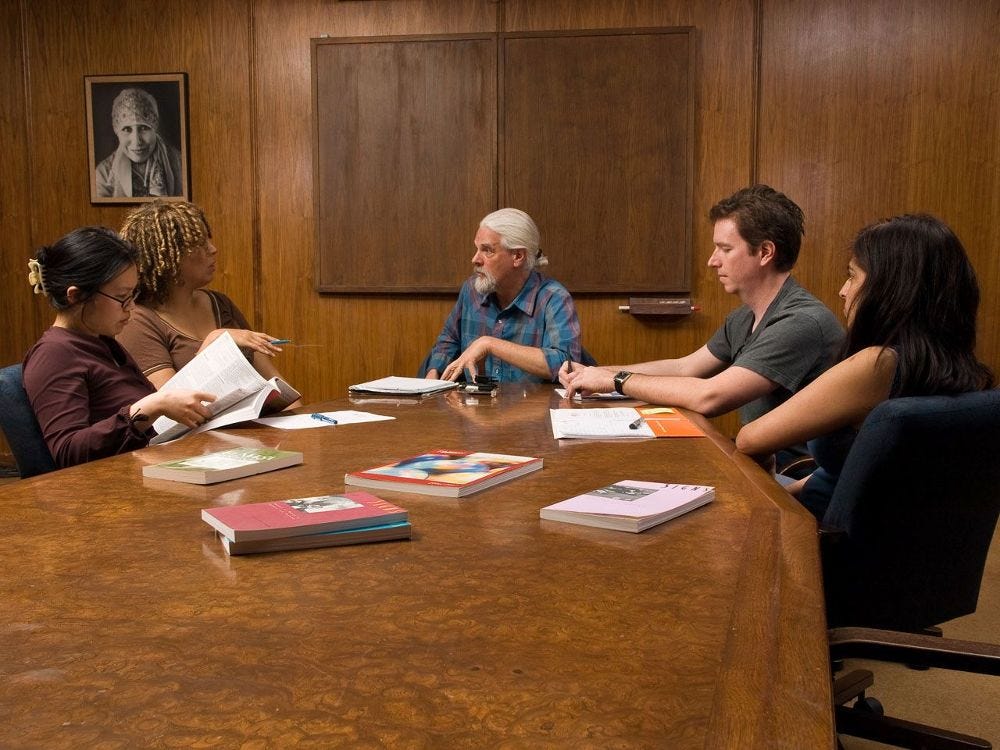
One of Angana’s close assistants once told me how Angana coerced her into giving her a very special ring that had been passed down from her grandmother. She repeatedly resisted but Angana persisted and she eventually gave in. She said when Angana was upset with her she would wear the ring in class. When Angana was not upset she wouldn’t wear it.
The ring example is just one of many that illustrate how manipulative and controlling Angana was. What I’ve reported is only a fraction of what actually occurred in the program. Undoubtedly, there are countless more stories of abuse and exploitation at the hands of Angana and Richard. This is just the tip of the iceberg.
I Never Gave Up
I refused to give up after leaving the program and kept pushing the issue behind the scenes. I was angry and concerned. I wrote a lengthy in-depth document called “Reason and Revolution in the Anthropology Department” that detailed the extent of dysfunction occurring. I had someone send it to the CIIS student listserv. It included emails and important statements from the students who left. I was publicly attacked by the anthropology students and the professors but kept pushing back. A final 60-page version of my report was sent out somewhat later called “When Silence is Necessary.” I also repeatedly emailed administrators, professors and staff.

After my concerted efforts I was told things were changing. Pushing the issue and going public apparently had an impact. It held Angana and Richard accountable to a larger audience and brought the issues outside of the single minded mentality of the anthropology program.
I received numerous emails from students not in the anthropology program in response to my efforts to expose them. It was clear they could see what was transpiring:
“I am very glad you sent this to all the faculty and administration. I really hope they find a way to fire that psycho Chatterji and her husband Shapiro. They are a disgrace to CIIS and it is a crime that our tuition supports such vile behavior. And again thanks for taking all that heat and never giving up! Blessings to you! You were a godsend to CIIS!”
Another:
“Your ability to think about your experience, make meaning of it, and educate others about the dangers of groupthink is a testament to your resiliency. Best of luck in all of your future endeavors. Any academic institution would be luck to have you.”
And another:
“I am so glad you fought this through all the way. As I think I mentioned before I almost did not come to CIIS because my first contact with it was Angana Chatterji and I thought she was insane. I really hope they get rid of her. It is an embarrassment that she is employed by CIIS. I want my PhD to be from a reputable school. Best of luck to you and again thank you for fighting this through and informing everyone you can.”
My persistent efforts weren’t enough to end their reign, however. That didn’t happen for several years but the foundation had been planted.
An Investigation Ensues
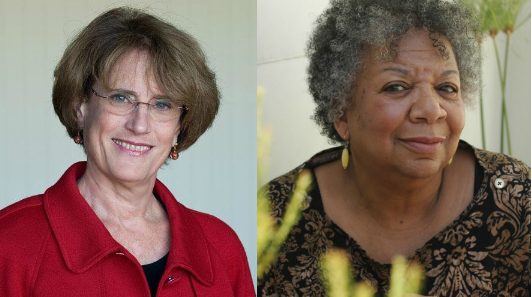
The investigation that began four years after we left was initiated when the entire 2011 PhD Cultural Anthropology cohort refused to return. It was also spurred on after Angana and Richard orchestrated a plan to fire fellow anthropology professor Matthew Bronson. They convinced their students, most of whom didn’t really know Matthew, to sign a petition to get him fired. These sorts of group emails with mass signatures were common in the department. It’s how uniformity was ensured and one of the ways dissent was squashed. Combined with the previous history of complaints, Dean of Faculty Judie Wexler and Dean of Students Shirley Strong began a full investigation.
While I wasn’t directly involved in 2011 there were many students involved in the process of accountability. One student explains, “In the fall of 2011 I and many others were doing an immense amount of organizing work, every day and week, to support two dozen student whistleblowers, have healing story circles, secret meetings in bars, get people access to trauma counseling, putting out fires that the Inner Circle folks were lighting with their framing of the hearing process as a violation of academic freedom, meetings with the administration, etc. It took so much work from so many people to make the hearing process move forward.”
In order to ensure fairness, both the two professors, Angana Chatterji and Richard Shapiro and the CIIS admin had the right to nominate and veto faculty to the three-member Hearing Board that would decide their fate. During the summer of 2011 the board heard testimony from students and CIIS staff, including Angana and Richard and they evaluated letters, files and numerous documents.
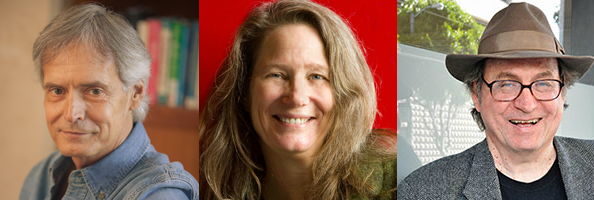
Some of Angana and Richard’s closest followers, assistants and longtime PhD students (7 years+) flipped on them and told their stories, revealing everything. For the first time students who had previously been too terrified to come forward, finally spoke their truth. There were approximately 19 written statements presented against Angana and Richard in addition to the five witnesses that spoke against them. The two professors also got to have five students of their choosing testify on their behalf during the hearings.Angana and Richard and the school administration were allowed to question and cross-examine each witness.
“She conjures Kali, and she is a destroyer”
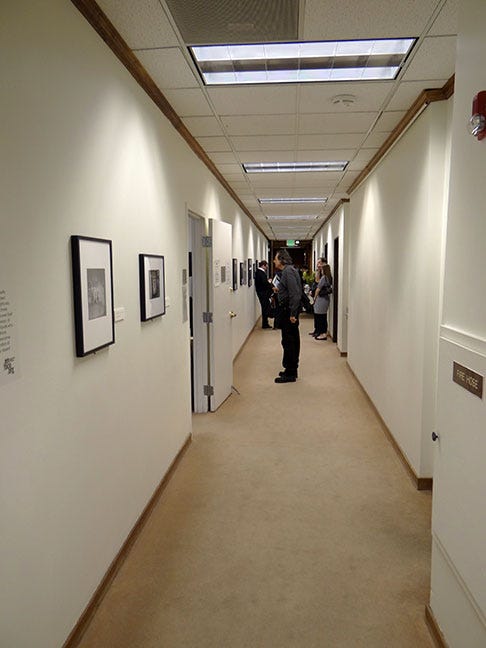
Angana and Richard were suspended during the investigation and their closest students were not happy.
During the investigation one student could be found in the hallway of CIIS crying while fasting. He stated, “I weep compassion and vulnerability — the compensatory emotional fields needed to heal and transform our school.” He warned that if the Anthropology program’s “core disappears [Angana & Richard]… be forewarned: The ecology of place, of CIIS, and of the Earth is in jeopardy.”
One student went on a 13-day hunger strike in October to try and get Angana and Richard reinstated during their suspension. She stated, “I fast because it is the only way I know how to physically express the starvation I feel every day that passes, wasted in the wind, void of the education I was promised. I fast in hope that it brings me peace amongst the chaos that has become my life…That our lives have been destroyed — forever altering them, robbing them their bounty of education?! How dare you dangle something so precious as that in front of my face, letting me get just a taste, and then greedily snatch it back!”
Tires were slashed in the CIIS parking lot. People were harassed and threatened. One student even had their entire computer erased by Angana’s most devoted student.
The same student who fasted in the hallway also wrote the very cultish statement that deserves repeating:
“Dr. Angana Chatterji is the most powerful being I have ever met…Her capacity borderlines on Mastery. Her power is deeply complex…She uses concentrated rage with Mastery…I am becoming a Master — like her I conjure divinity…These beings [Angana and Richard Shapiro] resonate on degrees of consciousness barely comprehensible to others…She [Angana] is the one whom we fear, to whom we gravitate… and in her presence we share divine expression, visions of practice, healing, and transformation. She conjures Kali and she is a destroyer.”
Another Angana devotee professed her love:
“Yes, she can be opinionated and if you don’t know Anganaese (the nickname I gave her language), it can be overwhelming. But, she helped ME to open my mind and my heart to the world around me…This has allowed me to maintain a descriptive relationship to Self, within a framework of unorganized, non-directional selfs (sounds familiar?)…if you felt intimidated by Angana, that was lesson 101…I AM LESSON 202…CALL ME….”
This talk of “unorganized, non-directional selfs” was typical of the jargon used to dismantle our internal stability and make us question ourselves.
Fired from CIIS
Angana and Richard were fired when the investigation was completed. Their firing confirmed everything the four of us whistleblowers reported several years earlier.
As in accordance with the Faculty procedures the Hearing Board produced two reports detailing the findings against Angana and Richard.
“The Hearing Board was shocked at the climate of fear and intimidation within the program fostered by Dr. Chatterji. The abuse of power, the stifling of students’ growth and professional development, the controlling behavior towards students in their personal lives and the CIIS Student Association and in supposedly confidential student surveys, the “siege mentality” in which enemies were seen to be constantly threatening the two leaders of the program who then needed to be protected at all costs, the traumatization of students and the ensuing loss of confidence and self-esteem, the strong negative impact on their academic and professional careers, the exploitation of students for faculty interests, the promotion of a cult-like atmosphere that banishes dissent and dissenters…”
The Hearing Board also found a “knowing or reckless violation of established students rights to confidentiality, to non-discrimination, non-harassment and non-retaliation,” the violation of “the professional ethics of the Institute,” “Dishonesty, including misapplication of funds,” and “Persistent failure to perform position-related assignments or other neglect of academic duties.” The board recommended they “be relieved of all duties and dismissed from the Institute” as “there is substantial risk to further damage to students and CIIS unless immediate action is undertaken.”

On December, 5th 2011 president Joseph Subbiondo emailed faculty and staff with the findings of the Hearing Board:
Dear Faculty and Staff,
In keeping with the requirements of the Faculty Handbook, the Faculty Hearing Board sent me its recommendations that Professor Angana Chatterji and Professor Richard Shapiro be terminated from CIIS for cause (for copies of the recommendations and the reports of the Faculty Hearing Board, please see the attached). After reviewing the Reports, the transcripts of the hearing, and the supporting evidence for the hearing, I have sustained the recommendations. I transmitted the Faculty Hearing Board’s recommendations and reports as well as my sustaining recommendations to the Board of Trustees. The Board of Trustees has decided to sustain the recommendations of the Faculty Hearing Board and of the President for the termination of the faculty members.
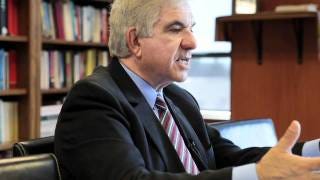
While we are grateful that the hearing process has concluded, I am mindful that other steps remain to support our Social and Cultural Anthropology program (SCA) and to enable it to fulfill its full potential. We will continue to provide an Anthropology program that is committed to social justice, social advocacy, and postcolonial Anthropology. Professors Mutombo Mpyana, Andrej Grubacic, Hodari Toure, and Fouzieyha Towghi will teach in Spring semester 2012, along with Roxanne Dunbar-Ortiz and Eddie Yuen.
A priority throughout this difficult fall semester has been attempting to work with Anthropology students on an individual basis to address their academic concerns and ensure their academic progress. This will remain a key component of our efforts to support the department.
I especially wish to thank the members of the Faculty Hearing Board and of the Executive Committee of the Faculty Council who appointed them for their extraordinary commitment to due process.
Sincerely, Joe
Joseph L. Subbiondo
President
The Aftermath
One high-level official at CIIS with whom I had been in contact, emailed, “I can’t believe it! This is amazing. After four years…it’s all over! At least the biggest part of it…Interested in returning to a new program with excellent faculty? You might be able to negotiate a free completion of your MA.”
The new program and directors are great I just had no interest. I was too traumatized by the whole experience and the way CIIS had handled it.
The impact of this situation on students’ lives is hard to grasp. Many of us were extremely traumatized and deeply wounded. We lost months or years of work that was abruptly ended or wouldn’t transfer to other schools. I personally lost $20,000 between tuition and living expenses. Angana’s main student, who eventually flipped on her, developed cancer in the midst of the collapse of the program. For years I had PTSD and probably still have it today. I cannot imagine the cumulative personal, financial, and emotional impact this had on students.
It’s ironic because the Cultural Anthropology program was the most critical at CIIS of religion and spirituality. In practice, however, it most embodied the stereotypical religious structure. It was dogmatic, controlling, salvific, authoritarian and abusive.
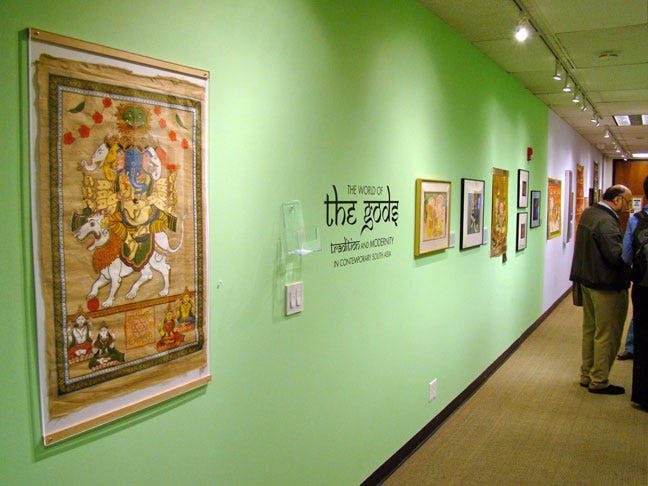
That a personality cult of this nature could exist for so long and do so much damage in an academic institution should teach us all something. Cults don’t only exist in far off places where the members wear strange garb and chant in tongues. The cultish mechanisms of control, manipulation and authoritarianism can seep into our most modern, “conscious” structures, institutions and practices.
Other than the Hearing Board reports sent to faculty and staff there has been no public acknowledgment by CIIS of this situation that I’m aware of. Now that the story is public, perhaps there can be transparency on CIIS’ part of what happened.
Studying this graduate school cult is important in preventing similar instances in the future. What happened in the Cultural Anthropology program at the California Institute of Integral Studies must never be forgotten. No group or leader, regardless of how secular or how supported they are by a trusted institution, is immune from reproducing a cult like environment. We should always remain suspicious of power.
I’ll end with a particularly relevant quote from Noam Chomsky, “Any social arrangement that inhibits or constrains that free creative capacity is fundamentally illegitimate unless they can justify themselves. Any structure of authority, domination, hierarchy whether it’s in a patriarchal family or in international affairs should be subject to challenge. It’s not self justifying.”

